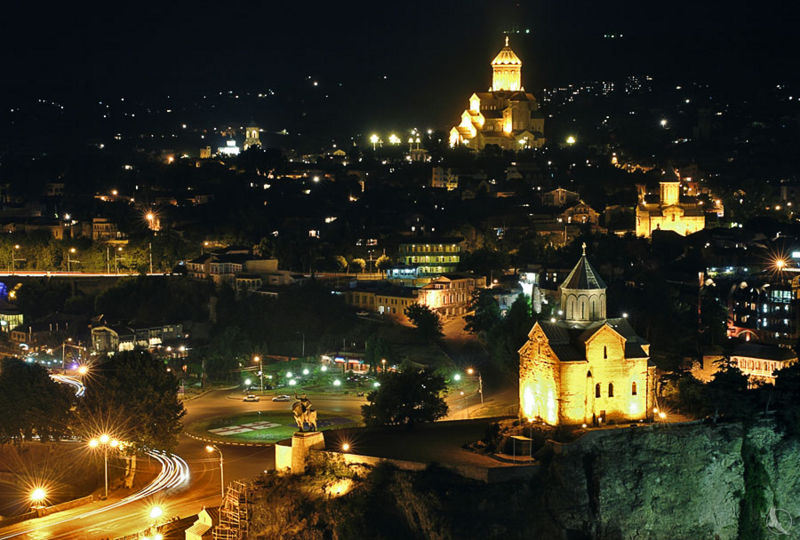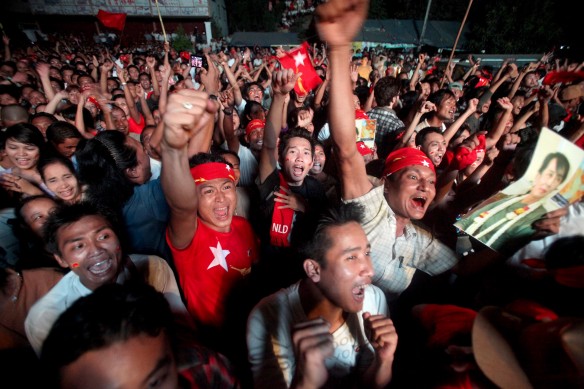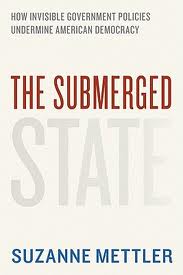It is Not Only About Germany: Technocratic Agenda and the European Project
Mark Leonard, Director of the European Council on Foreign Relations, recently discussed an important trend that looms over the European project. Commenting on the recent scandalous statements by the Germany populist politician Thilo Sarrazin and the disavowal of his position by leading German politicians, Leonard voiced his concern that if ‘the establishment cartel turns [populists like Sarrazin] into outcasts rather than arguing with their views’, they will be able to tap into an ever-growing ‘reservoir of pent-up political frustration’. Leonard goes on by stressing that it is particularly worrying that ‘Germany’s leaders are now trying to treat foreign politicians who question German orthodoxy the same way they treat their own populists’. German responses to the question of a Greek referendum …

The Caucasus: A case of mistaken identity?
What matters more: who you think you are or who others think you are? Addressing a major gap in IR scholarship, the importance of identity in influencing state behaviour was first elucidated by writers within the Constructivist school of thought, most notable among whom was Alexander Wendt. In his seminal article “Anarchy is what states make of it”, Wendt draws attention to the significance of identity by employing the metaphor of “the looking-glass self”, arguing that states form identities of themselves through their interactions with other states: that “the self is a reflection of an actor’s socialization”(Wendt 1992:404). Such a theory seems to predict that a state’s identity and how others perceive it should bear correlation. How, then, do we …

Is the UK Border Agency ‘not fit for purpose’? What purpose exactly?
The Home Affairs Committee has recently published a report into the work of the UK Border Agency in which it criticises the UKBA for failing to deport more than 600 Foreign National Prisoners who were released between 1999 and 2006 and are still in the country. It also says the Agency is failing to clear the ever increasing “controlled archive” of unresolved cases in the Case Resolution Programme. The report calls on for the Home Office to ‘act immediately to deal with the public scepticism in the effectiveness of the UK Border Agency’. Keith Vaz MP (Labour), Chair of the Committee, said: The reputation of the Home Office, and by extension, the UK Government, is being tarnished by the inability …

A Burmese Spring?
For the first time since the massacre of protesting monks in 2007, Myanmar is suddenly in the news. The National League for Democracy (NLD) has recently won 43 of 45 seats contested in a recent by-election and their leader and pro-democracy icon Daw Aung San Suu Kyi, beat her rival, former military doctor U Soe Min of the Junta-backed Union Solidarity and Development Party (USDP), in Kawhmu township just outside Yangon. These are the first significant multiparty elections in Myanmar in over twenty years and the results haven’t been simply annulled as they were last time. The NLD even won all four seats in the newly built capital, Naypiyadaw, where powerful men (they are all men) from the military establishment form over …

Next steps for Romney?
It continues to look like Mitt Romney will be the Republican candidate for President in the fall. While he is still fighting a war of attrition with Rick Santorum, it will take a major game changer for him to lose the primary. So it is no surprise that he is increasingly orienting himself towards the general election. What can the course of the campaign so far tell us about the challenges Romney will face and how he will try to tackle them? The drawn-out primary has been a mixed blessing, forcing Romney to cater to a conservative base out of touch with many Americans, forcing him to spend time and money battling right-wing rivals when he would have preferred to …

Preventing progress in Palestine: Israel must do more to break the deadlock
In Israel and the Palestinian territories, decades of conflict have not offered ripe soil for mutual understanding and peace on reasonable terms. Endless confrontation has eroded hopes for successful negotiations. Nonetheless, the frequent reference to a ‘status quo’ in the Israeli-Palestinian conflict is mistaken – in my opinion, it’s pure political rhetoric and this conflict is anything but one of attrition. Every day, new settler houses are being built in the West Bank and east Jerusalem – on Palestinian land. Everyday bricks are added to the anti-terrorist fence (or apartheid wall, as some call it), thereby outcasting communities of shared history, as well as hindering commerce and splitting communities (and families) apart. The Israeli government, meanwhile, has authorised the building …
The risks of the current approach to Greece and the Euro-crisis
Last week, I debated how much more the Greek nation can take given the enormous internal and external pressures on families, society and the nation. When discussing this with my friend and colleague Pavlos Efthymiou, we realised that some important points were missing and have rewritten the article together (also published on ELIAMEP). Mainstream International Relations (IR) thinking (see Realism, Liberalism) holds that the national interest drives states to act the way they do on the international stage. This post-hoc rationalising to explain policy outcomes works successfully enough to be employed by the majority of policy-makers, academics, and analysts to inform their audiences. However, what they are often missing is how such an interest comes about and what it is …

Book Review: The Submerged State: How Invisible Government Policies are Undermining American Democracy
The Submerged State: Atlantis? No, a slim and highly readable volume in which Suzanne Mettler describes how certain public policies have become highly resistant to reform and damaging to American democracy. By ‘submerged state’ Mettler means a set of indirect government subsidies and benefits whose size and beneficiaries, indeed whose very existence, is largely invisible to the public. Some types of governmental intervention are highly visible: most citizens are aware of them and know something about what they are, how they work and who benefits from them. For instance, most people know about the veterans’ benefits offered by the G.I. Bill. But others are more ‘submerged’, hidden either because they are channelled through private delivery organizations or because they come to …









